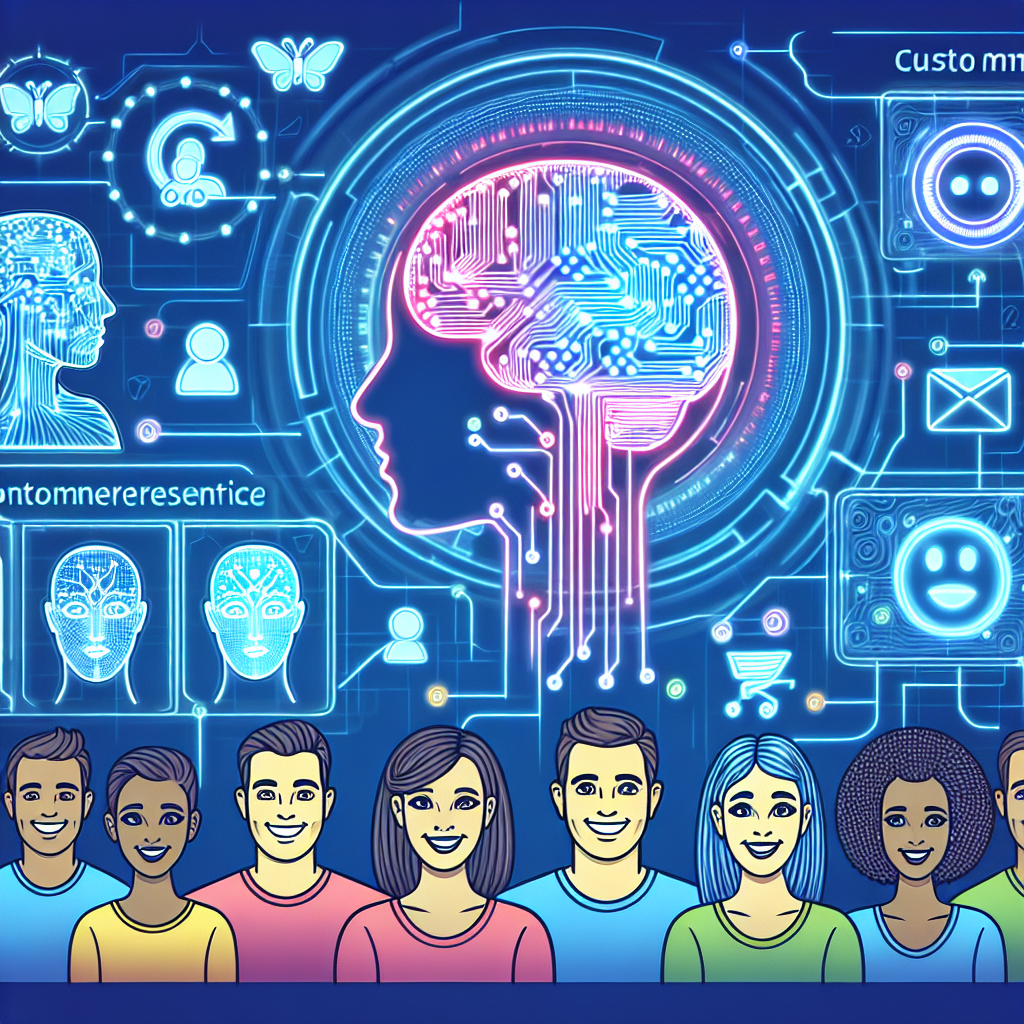Artificial Intelligence (AI) has revolutionized many industries, and one of the most significant impacts it has had is on customer service. AI technology has the ability to streamline processes, improve efficiency, and provide better customer experiences. In this article, we will explore the role of AI in revolutionizing customer service and how businesses can leverage this technology to enhance their customer interactions.
AI in Customer Service:
1. Chatbots: One of the most common uses of AI in customer service is through chatbots. These AI-powered virtual assistants can provide instant responses to customer queries, help with troubleshooting issues, and even guide customers through the purchasing process. Chatbots are available 24/7, which means customers can get assistance anytime, anywhere. This can significantly reduce response times and improve customer satisfaction.
2. Personalization: AI can be used to analyze customer data and provide personalized recommendations and offers based on their preferences and behavior. This level of personalization can help businesses create more targeted marketing campaigns and provide a more tailored customer experience.
3. Predictive Analytics: AI technology can analyze data to predict customer behavior, such as when a customer is likely to make a purchase or churn. By identifying these patterns, businesses can take proactive steps to retain customers and drive more sales.
4. Voice Assistants: Voice assistants like Siri, Alexa, and Google Assistant have become increasingly popular for customer service interactions. Customers can use voice commands to get information, make purchases, and even schedule appointments. Voice assistants can provide a more natural and convenient way for customers to interact with businesses.
5. Sentiment Analysis: AI can analyze customer feedback, reviews, and social media posts to gauge customer sentiment. This information can help businesses identify areas for improvement and address customer concerns before they escalate.
Benefits of AI in Customer Service:
1. Improved Efficiency: AI can handle a large volume of customer inquiries simultaneously, reducing the need for human agents to handle repetitive tasks. This can free up agents to focus on more complex issues that require human intervention.
2. Cost Savings: By automating routine customer service tasks, businesses can reduce operational costs and improve their bottom line. AI-powered chatbots, for example, can handle a high volume of inquiries at a fraction of the cost of hiring additional human agents.
3. Enhanced Customer Experience: AI can provide faster response times, personalized recommendations, and round-the-clock support, leading to a better overall customer experience. Customers appreciate quick and efficient service, and AI can help businesses deliver on that expectation.
4. Scalability: AI technology can easily scale to meet the demands of a growing customer base. As businesses expand, they can rely on AI to handle an increasing number of customer inquiries without compromising service quality.
Challenges of AI in Customer Service:
1. Lack of Human Touch: While AI can provide efficient and accurate responses, some customers may prefer human interaction for more complex issues or emotional support. Businesses need to strike a balance between automation and human intervention to ensure a positive customer experience.
2. Data Privacy Concerns: AI relies on customer data to provide personalized recommendations and improve service. Businesses must ensure that they are transparent about how customer data is used and stored to maintain trust with their customers.
3. Integration with Existing Systems: Implementing AI technology into existing customer service processes can be challenging, especially if businesses have legacy systems in place. It is essential to ensure that AI solutions are seamlessly integrated with existing systems to maximize their effectiveness.
4. Training and Maintenance: AI technology requires ongoing training and maintenance to ensure optimal performance. Businesses need to invest in training programs for employees to understand how to use AI tools effectively and keep them up to date with the latest advancements in AI technology.
FAQs:
Q: Can AI completely replace human customer service agents?
A: While AI technology can automate many routine customer service tasks, human agents are still essential for handling complex issues and providing emotional support. Businesses can use AI to augment the capabilities of human agents and improve overall efficiency.
Q: How can businesses ensure that AI-powered customer service is ethical?
A: Businesses should ensure that AI algorithms are transparent, fair, and unbiased. They should also prioritize data privacy and security to protect customer information. Regular audits and oversight can help ensure that AI systems are operating ethically.
Q: What are some best practices for implementing AI in customer service?
A: Businesses should start by identifying the specific customer service tasks that can benefit from AI automation. They should also invest in training programs for employees to understand how to use AI tools effectively. Regular monitoring and feedback can help businesses continuously improve their AI-powered customer service.
In conclusion, AI technology has the potential to revolutionize customer service by improving efficiency, enhancing the customer experience, and driving cost savings. Businesses that embrace AI in their customer service processes can gain a competitive edge and better meet the needs of their customers. By understanding the role of AI in customer service and addressing potential challenges, businesses can leverage this technology to transform their customer interactions for the better.

